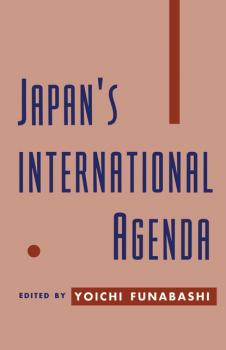Yoichi Funabashi
Список книг автора Yoichi FunabashiMeltdown
The human drama, and long-term lessons, of the Fukushima nuclear disaster The Fukushima nuclear disaster in March 2011 presented an enormous challenge even to Japan, one of the world's most advanced and organized countries. Failures at all levels—of both the government and the private sector—worsened the human and economic impact of the disaster and ensured that the consequences would continue for many years to come. Based on interviews with more than 300 government officials, power plant operators, and military personnel during the years since the disaster, Meltdown is a meticulous recounting and analysis of the human stories behind the response to the Fukushima disaster. While the people battling to deal with the crisis at the site of the power plant were risking their lives, the government at the highest levels in Tokyo was in disarray and the utility company that operated the plants seemed focused more on power struggles with the government than on dealing with the crisis. The author, one of Japan's most eminent journalists, provides an unrivaled chronological account of the immediate two weeks of human struggle to contain man-made technology that was overwhelmed by nature. Yoichi Funabashi gives insights into why Japan's decisionmaking process failed almost as dramatically as had the Fukushima nuclear reactors, which went into meltdown following a major tsunami. Funabashi uses the Fukushima experience to draw lessons on leadership, governance, disaster resilience, and crisis management—lessons that have universal application and pertinence for an increasingly technology-driven and interconnected global society.
Japan's International Agenda
What is Japan's political role in the world? Over the past decade, Japan has been increasingly pressured to assume more financial and political burdens globally. Its foreign policy has thus evolved in a piecemeal manner, around the question of managing foreign pressures. To date, policy has been largely developed by bureaucrats, who are traditionally responsible for public policy in Japan. The lack of a clear set of foreign policy objectives, however, has made it impossible for the bureaucracy to play its previous role as the arbiter of public interests. Today, there is increased recognition that in a more pluralistic society, nongovernmental public policy specialists are needed to provide a more integrated and longer-term vision of foreign policy goals. This book represents the first private and non- governmental indigenous effort to stimulate public debate of Japanese foreign policy. Japan's International Agenda makes a distinctive contribution to the foreign policy debate. Its contributors are younger Japanese non-governmental foreign affairs specialists, each with considerable international experience and committed to the belief that significant policy reforms are essential. As a statement of Japan's ability to contribute substantially to international policy debates on such broad questions of security and trade and development, Japan's International Agenda will enable scholars and experts in North America, Europe, the Asia-Pacific region, and elsewhere to engage in substantive dialogue on critical public policy issues with their Japanese counterparts. This book represents the first private, indigenous effort to stimulate public debate of Japanese foreign policy. Its contributors are young Japanese foreign affairs specialists, each with considerable international experience and a commitment to the belief that significant policy reforms are essential.

